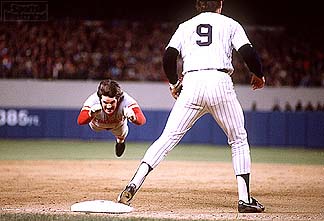That's partly because the GOP nominee will be stronger than Gerald Ford (with all due respect to the memory of that decent man, who would have been a better president than Carter). While a half-term senator and a one-term senator fight it out for the Democratic nomination, the GOP candidates include an experienced senator who's a war hero, the most successful political chief executive in recent times, an impressive businessman/governor, and a canny lawyer/senator/actor with Washington experience and a nice, middle-American background and manner.
Here's what's likely to happen: When the nominees are selected next year, the Republican will be behind--just as the GOP nominee trailed, at various times, in the 1980, 1988, 2000, and 2004 campaigns. Then the Republican will rally and probably win. Look to 1988 for a model: a tired, two-term presidency, a newly invigorated Democratic Congress causing all
kinds of problems for the administration, an intelligent, allegedly centrist Democratic nominee, and a bruising Republican primary with lots of unhappiness about the field of candidates. This resulted in a 17-point early lead for Michael Dukakis over George H.W. Bush, but an eventual Republican victory. True, the current Republican incumbent, George W. Bush, isn't Ronald Reagan. And the 2008 Republican nominee is going to have to chart his own path to victory. It will be a challenge. But it's a healthy one. Let McCain, Giuliani, Thompson, and Romney have at it. The competition will be good for them and good for the party, ensuring that the winner will be up to the task both of winning the presidency and leading the country.
No doubt he totally bogarted the whole can.
Monday, October 15, 2007
Bill Kristol's World
....oh, and by the way, Little Bill Kristol was huffing the keyboard cleaner again:
Subscribe to:
Post Comments (Atom)

No comments:
Post a Comment